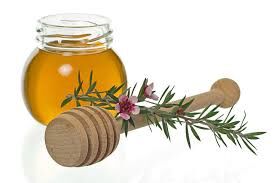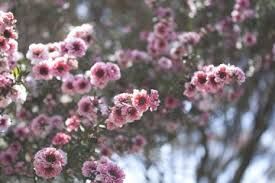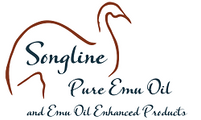Why Manuka Honey?
Posted by Yolanda Campbell on Aug 07, 2018

Manuka honey (Leptospermum scoparium), is a monofloral honey derived from the nectar of the Manuka tree. Honey has earned a high regard for its medicinal purposes dating back thousands of years and is rich in natural antimicrobial sources. Manuka honey is one of the most unique and beneficial forms of honey. Recent studies have produced a growing body of research on its biological properties, particularly its antimicrobial and antioxidant capacities that support the thousands of years of folk medicine use. (Alvarez-Suarez et al.) ("Is Manuka Honey Even Healthier Than Normal Raw Honey?").
Studies indicate Manuka honey has demonstrable success in clearing up infections, including abscesses, surgical wounds, traumatic wounds, burns and ulcers of different etiology. (Alvarez-Suarez et al.) A large number of components in small amounts provide nutritional and biological effects including both antimicrobial and antioxidant activities in Manuka honey, and it has proven advantages in controlling bacterial growth without issues of microbial resistance making it a promising topical antimicrobial agent against the infection of antibiotic-resistant bacteria (Mandal, and Mandal). The absence of antibiotic resistance, often found with conventional antibiotics, is important for the use of this honey in the treatment of various degrees of wounds. (Alvarez-Suarez et al.). The strong antioxidant capacities help regulate free radical production and protect cell components from their harmful action (Alvarez-Suarez et al.) offering an ability to fight the aging process of our skin.
Manuka honey’s traditional healing properties are credited to its antibacterial activity, ability to maintain a moist wound environment to bolster healing, as well as holding an adhesiveness that helps to provide a protective barrier to prevent infection. In this honey, researchers found a naturally occurring ingredient, methyl glyoxal (MGO) that is the active ingredient responsible for the antibacterial, antimicrobial, antioxidant capabilities in Manuka honey (Carter et al., 2016) (Mandal, and Mandal)
The Unique Manuka Factor Honey Association has developed an internationally respected rating system for the ingredients in Manuka honey, UMF (Unique Manuka Factor). The organization tests, licenses and trademarks the honey – their rating tests and ensures the amount of MGO in each organization’s honey https://www.umf.org.nz/unique-manuka-factor/. Based on the MGO level rated from a low of 5+ to a high of 25+, a rating 15+ and over has a high therapeutic value (Lixandru).

The beneficial uses of Manuka honey are wide-ranging – they go from basic skin care, acne and eczema treatment, and anti-aging uses through burn and wound care and even fighting bacterial infection from antibiotic-resistant bacteria (Mandal, and Mandal). Archeologists say they found unspoiled honey in Egyptian tombs. Far Eastern traditions, Greek mythology and biblical times all praised honey for its healing properties. Modern research is now not only confirming those stories but also building on them. Manuka honey, especially Manuka honey that has the Unique Manuka Factor, has even more nutritional and immune-enhancing abilities than regular raw honey ("10 Proven Manuka Honey Benefits & Uses")... A natural super-gift!
We use Comvita Certified UMF 15+ Manuka Honey in a number of our products. Songline Body Butter; Songline Body Wash and Songline Emu "Bomb".

